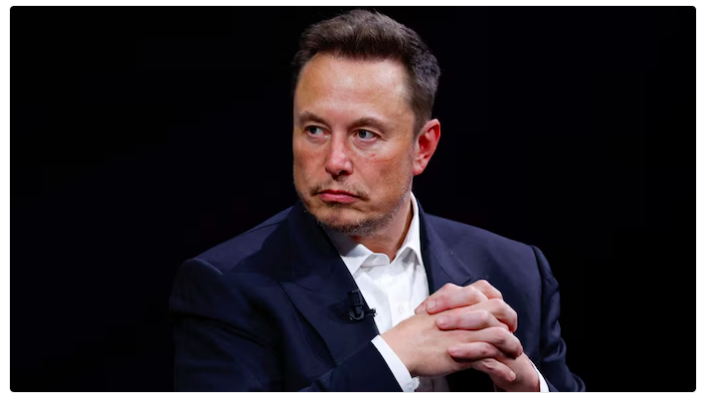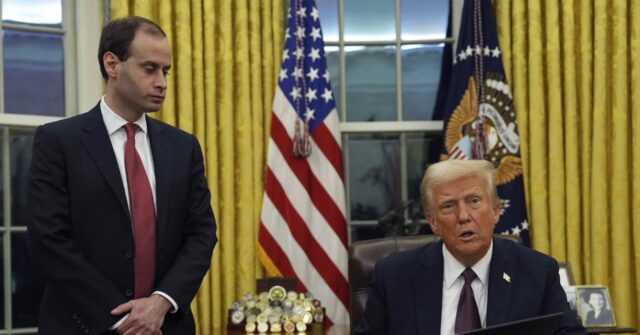Eric Thompson Show Podcast
Elon Musk, the innovative force behind companies such as Tesla and SpaceX, has once again stirred the political landscape with his call for a nationwide ban on electronic voting machines, citing their vulnerability to hacking and fraud.
Musk’s concerns resonate with a growing segment of the electorate worried about the integrity of the democratic process.

Speaking at a technology conference, Musk emphasized the inherent risks associated with current electronic voting systems. “The risk of being hacked is still too high,” Musk stated unequivocally, pointing to numerous incidents and studies that highlight the susceptibility of these machines to cyber-attacks.
Musk’s assertion is not without merit. The controversy surrounding electronic voting machines has been an ongoing issue, particularly since the contentious 2020 U.S. presidential election. Cybersecurity experts have repeatedly demonstrated how easily these machines can be breached. A report from the Brennan Center for Justice underscores these vulnerabilities, noting that many voting machines in use today are outdated and lack basic security features found in modern technology.
Musk’s proposal advocates for a return to paper ballots, which he argues are more secure and reliable. He contends that a manual system, while seemingly archaic in the digital age, offers a tangible method of verification that electronic systems simply cannot match. “We need to revert to paper ballots. They are secure and provide a physical record that can be verified,” Musk stated.
We should eliminate electronic voting machines. The risk of being hacked by humans or AI, while small, is still too high. https://t.co/PHzJsoXpLh
— Elon Musk (@elonmusk) June 15, 2024
This call to action has garnered significant attention and support, particularly from conservative circles that have long questioned the reliability of electronic voting systems. Prominent voices within the Republican Party have echoed Musk’s sentiments, emphasizing the need for election integrity and the importance of public trust in the electoral process.
Conversely, some critics argue that Musk’s stance is overly simplistic and fails to consider the logistical challenges of reverting entirely to paper ballots. They point to the efficiency and accessibility of electronic voting machines, particularly for disabled voters and those in remote areas. However, Musk and his supporters maintain that these concerns can be addressed through innovative solutions without compromising security.
The debate over electronic voting machines is not new. In 2016, the Department of Homeland Security designated election systems as critical infrastructure, highlighting the need for enhanced security measures. Despite this designation, progress has been slow, and many jurisdictions continue to use machines that are susceptible to hacking.
Musk’s comments also touch on a broader issue of technological oversight and the responsibility of tech giants in safeguarding democratic institutions. As a leading figure in the tech industry, Musk’s call for increased scrutiny and reform carries significant weight. His stance aligns with a growing demand for greater transparency and accountability in election technologies.
A study by the University of Michigan revealed alarming flaws in several widely-used voting machines, demonstrating that they could be compromised with relative ease. These findings bolster Musk’s argument and underscore the urgent need for a comprehensive review of the technologies underpinning modern elections.
Additionally, the National Institute of Standards and Technology (NIST) has highlighted the importance of developing more secure voting systems. Their guidelines suggest adopting a layered security approach, which includes paper ballots as a failsafe against electronic failures or manipulations.
Musk’s advocacy for paper ballots is rooted in a fundamental principle: the preservation of trust in the electoral process. As he aptly noted, “The integrity of our elections is paramount. We must ensure that every vote is counted accurately and securely.” His call to action serves as a reminder of the delicate balance between technological advancement and the necessity for robust security measures.
In light of Musk’s statements, policymakers face increasing pressure to address the vulnerabilities in the current voting infrastructure. The debate continues to evolve, with significant implications for the future of American democracy. Whether or not Musk’s vision of a return to paper ballots will be realized remains to be seen, but his intervention has undoubtedly reignited a crucial conversation about election security in the digital age.
